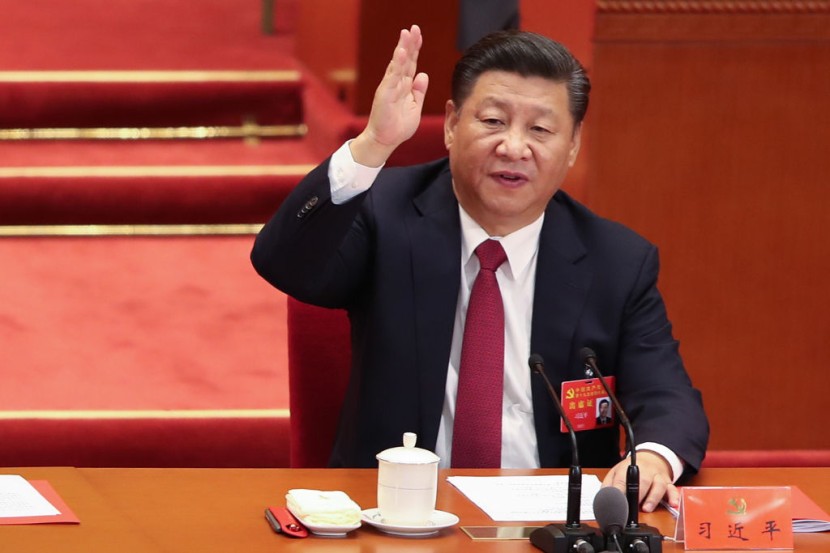
In a call with counterpart Vladimir Putin on Wednesday, Chinese President Xi Jinping maintained his support for Moscow on sovereignty and security issues, despite the worldwide response against Russia's invasion of Ukraine.
According to China's Foreign Ministry, speaking on his 69th birthday, Xi also committed to strengthening strategic cooperation between the two nations.
China Vows Support For Russia
According to a second Kremlin statement, the two presidents emphasized that their nations' ties were at an all-time high and reiterated their resolve to continually develop the comprehensive relationship. The phone contact is likely to be the two's second since Russia invaded Ukraine. They last spoke only a few days after Moscow initiated what it believes is a "special military operation."
China, too, has avoided referring to Russia's activities as an invasion, treading carefully on the matter. It has positioned itself as a supporter of peace and the global order while hesitating to condemn Russia's activities. It has also utilized its official media machinery to duplicate Kremlin positions, blaming the crisis on the US and NATO.
During the discussion on Wednesday, Xi Jinping emphasized that China has always independently assessed the situation in Ukraine and urged all parties to work for a proper resolution of the Ukraine problem, echoing words he used in a March call with US Vice President Joe Biden.
He stated that China is eager to continue to play a role in advocating a suitable settlement for Ukraine. China's failure to condemn Russia's conflict in Ukraine has weakened Beijing's already poor ties with the US and its allies.
Officials from the United States have frequently urged countries to denounce Russia's conduct and warned their Chinese counterparts against assisting Moscow. During the March call between Xi and Biden, the US President laid out the repercussions if China provided material help, citing US information that Moscow had sought Beijing for military assistance, which both deny, CNN reported.
US Reacts to China, Russia's Cooperation Agreement
According to the Kremlin, the two presidents agreed to increase economic cooperation in the face of illegal Western sanctions. However, the United States reacted quickly with a cold reply to Beijing's stated support for Moscow.
Washington was keenly monitoring China's behavior, especially how, over four months into Russia's conflict in Ukraine, the Asian powerhouse was still repeating Russian propaganda across the world' and implying Moscow's crimes in Ukraine were staged,' according to the official.
In retribution for its invasion of Ukraine, the West imposed unprecedented sanctions on Russia, and Moscow believes that Europe and the United States have created a worldwide economic downturn.
Moscow is also seeking new markets and suppliers to replace the large foreign corporations that fled Russia in the aftermath of the invasion. The European Union and the United States have warned that any support from Beijing for Russia's conflict or assistance to Moscow in evading Western sanctions would harm relations.
China and India are the two big economies that have not retaliated against Moscow. According to Chinese authorities, the Europeans have been pulled into supporting Ukraine at Washington's insistence, which is against their interests as Russian gas users.
Former Cold War adversaries, Beijing and Moscow have increased collaboration in recent years to offset what they regard as US global domination. As part of their no boundaries connection, the two have grown closer in the political, commercial, and military arenas, as per New Age World.
The Kremlin has reason to value Beijing's support, which reflects the public mood in China at a moment of strong competition with the West in general and the United States in particular. Since the commencement of the European war, senior Russian and Chinese officials have maintained close touch.
Sergey Lavrov, Russia's foreign minister, spoke with Chinese Foreign Minister Wang Yi just hours after Putin started his "special military operation" into Ukraine on February 24. In a phone chat with his Chinese counterpart the next day, Russian President Vladimir Putin stated his intention to "avoid genocide" in the Donbas.
Xi Jinping expressed his admiration for Russian President Vladimir Putin's conduct amid the present situation, according to a readout issued by the Russian Embassy in China three days later, on February 28.
To be sure, China's major trading partners in the West have been concerned by Beijing's refusal to condemn Moscow or even use the word "invasion" to describe recent events, decisions they see as providing significant political cover for Russia's actions, despite Beijing's insistence that it will not contribute materially to Putin's war, according to Newsweek via MSN.
Related Article : North Korea Suspected To Detonate Nuclear Bomb Any Time Despite West's Vow To Respond Amid Kim Jong Un's Desire to Bolster Deadly Arsenal
@YouTube








